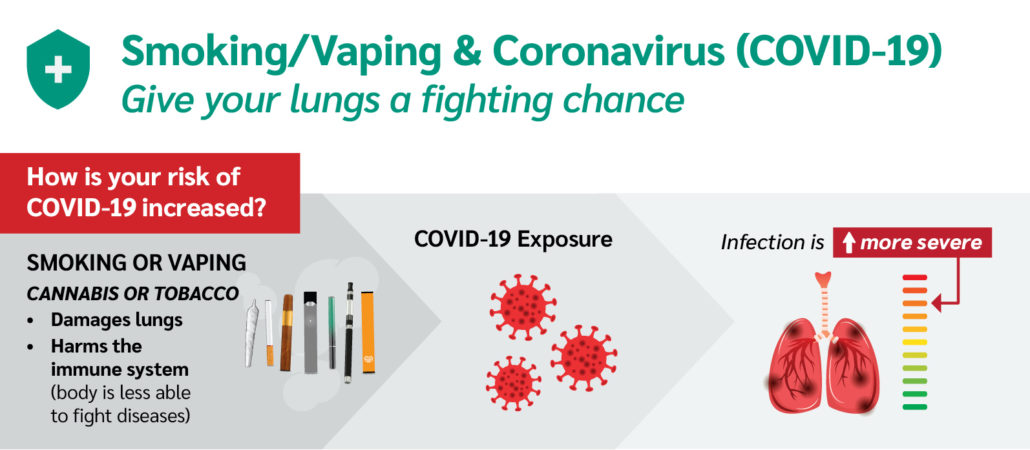smoking and vaping could increase the severity of COVID-19 due to blood vessel damage and a higher risk of stroke.
There is a growing body of evidence to suggest that, as well as the respiratory symptoms of COVID-19, the disease can also cause, among others, neurological effects.”
A recent report from a neurological hospital in the United Kingdom identifies cases of delirium, brain inflammation, nerve damage, and stroke in COVID-19 patients.
Reports of stroke in COVID-19 are particularly prevalent. Some reports estimate that 30% of critically ill COVID-19 patients experience blood clots. And if they occur in the brain, they may trigger a stroke.
Researchers from Texas Tech University Health Sciences Center previously found that smoking and vaping increases the risk of viral infection. They have now published a review on how these activities might affect the risk of neurological dysfunction in COVID-19, particularly from damage to blood vessels in the brain.
They found that both smoking and vaping could increase the risk of stroke in COVID-19 due to damage to the blood-brain barrier and a higher risk of blood clots.
Smoking causes well-known damage to the lungs and respiratory system. Previous research has shown that it also makes a person more vulnerable to influenza.
Smoking can also affect the vascular system in the brain, prompting the researchers to review the evidence on how this activity might influence the neurological symptoms of people who contract COVID-19.
They first looked at the evidence on SARS-CoV-2 and neurological disorders, including stroke. They found one study which showed that 36.4% of COVID-19 patients had neurological symptoms. Another paper found five cases of sudden stroke in COVID-19 patients aged 30–40 years due to abnormal blood clotting in their large arteries.
But how does this relate to smoking? The researchers explain that when the body is deprived of oxygen, which occurs with smoking, the amount of clotting factors in the blood increase.
In combination with COVID-19, which also increases blood-clotting proteins, the risk of stroke rises.
COVID-19 seems to have this ability to increase the risk for blood coagulation, as does smoke. This may ultimately translate in higher risk for stroke.”
Although there is less evidence around vaping, the authors found studies that show vape aerosol components can harm blood vessels in the brain.
Vaping also appears to affect the blood-brain barrier, the defensive structure which protects the brain from toxins and pathogens in the blood.
The researchers also found specific evidence that long-term vaping may increase the risk of stroke.
Vaping may also make a person more vulnerable to COVID-19 by increasing the number of ACE2 receptors expressed in the body, which are used by the novel coronavirus to infect cells. Smoking can also increase expression of the ACE2 receptor, and damages the blood-brain barrier.


